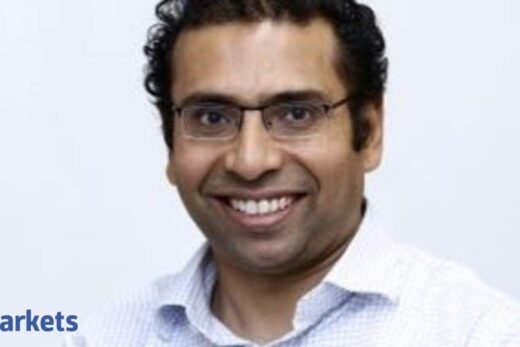How special was FY21 in your view and how are things geared for the next couple of months in FY22?
I would say FY20 and FY21 were exemplary years for the investment banking industry. FY21 was a notch higher and was a great year for the industry. Just to put some statistics around this, FY21 saw 120 deals on the ECM side, raising more than Rs 2,20,000 crore compared with FY20 that had 65 deals raising about Rs 1,40,000 crore. Similarly, the advisory and M&M side deals announced in FY21 were close to $120 billion compared with about $90 billion in FY20.
The components of the ECM business were IPOs and QIPs and we also saw during the last two years, the largest right issue came in from RIL and on the M&M and advisory side, the financial sponsors, private equity and the tech dominated in terms of doing deals. Overall, for the investment banking industry and for us, it has been a very busy time.
How do you expect FY22 to be?
We expect FY22 to continue on similar lines. There is a little bit of pause and fatigue in the equity capital market (ECM) given the volumes of deals and the bad news around Covid, but the pipeline is quite strong.
The composition of money is changing. Historically, US-based North American funds have been dominant in India but this time capital flow is coming from newer geographies. Give us some flavour of the kind of money which is coming in.
If I were to look at money flow in the context of the ECM deals, for some time now Asia and India have been dominant but let me give some new perspectives. There are a bunch of investors, particularly the sovereign wealth funds, who have been present in the secondary markets but who were not so active in IPOs. We are now seeing a change in that trend. In some of the recent IPOs, we saw sovereign wealth funds come in and invest a reasonable amount of money. We expect this pattern to continue. Similarly, emerging funds out of Europe have preferred participating in large caps and in the secondary markets. They have moved the bar a little bit to participate in midcap IPOs. We are seeing the trends continue.
We are also seeing very active involvement from hedge funds which are opening their long only books to remain invested in some of the IPOs. In our conversations with clients — both private equity investors and corporates — we find that there is reasonable optimism about deal making. There is also optimism that Indian markets have a great architecture to allow them listing or do M&A deals.
There is also an optimism that the flow of money will continue. Except for these odd windows when we may have abatement both on advisory and payment & cash management (PCM) — we continue to see a fair bit of optimism among both investors and clients.
What kind of enquires are in the pipeline? We understand that Nykaa, Zomato and policybazaar IPOs are in the offing. Some of the big new tech companies are showing interest about coming to D-Street.
I will not give you the names but I will give you an idea what kind of pipeline we are seeing. I think 2022 and 2023 are likely to be dominated on the equity capital market side by new listings on the tax base. The new age companies’ pipeline is quite active. There is also good interest from investors to invest in these companies. We have already seen some announcements of pre-IPOs and we expect the new age tech company IPOs to be very active.
The second space is specialty chemicals and allied space. Some very interesting and large names which have remained unlisted over the last many decades are now finding it worthwhile to consider listing. The healthcare sector continues to see inquiries and so we will see listings of healthcare and occasionally large auto ancillary companies. Last but not the least, the financial services space will see IPOs.
Quite a few names are likely to get listed over the next 12 to 18 months and this will give us an idea of the flavour of the sector. In the last one to two years, we saw real estate or financial services dominating the IPO space. We are now seeing more diversification. Newer sectors like specialty chemicals, agri chemicals and some very interesting companies in the consumer space are making it quite interesting for investors to engage. Our conversations with clients and investors show that there will be reasonable interest to partake in some of these offerings. On the QIP front, there was a lot of fundraising that happened front ended in FY20 and a little bit in FY21.While there will be some action in FY22, a lot more may happen in FY23.
Are the average deal sizes also going up? Is there more risk appetite among the investor community for some of these newer assets?
When we talk to investors and clients, we find there is a profound recognition that the sustainable way to build wealth is through a proper listing on the stock market and continuing to nurture it. There is one trend line that we have seen every year over the last three-four years. The average deal sizes have kept moving up and investors generally like large companies where they have the ability to participate. The impact cost is less and if these companies do well, they will have the ability to get into various indices over time.
We are noticing conversations. Companies are now looking at much larger floors than they were before. The average deal size has moved to Rs 1,000 crore but I will not be surprised if over the next one to two years, this needle will move a notch up to maybe Rs 1,500 crore. There are other deal sizes which are larger.
In the last two years, SBI Cards IPO was the largest in the private sector at close to Rs 10,000 crore. This year, Rs 6,479.55-crore Gland Pharma IPO took place. We were involved in both these deals. Larger deal sizes are preferred by investors. In some of these new age tech companies, we are seeing similar conversations where the deal sizes and the floors are likely to be large.
A quick word on where are we on the cycle as far as the stock market is concerned? Do you see any upside in 12-24 months as far as the earnings are concerned?
I will break it up into two parts. I think we are currently all in this second wave that has hit India in particular and other parts of the world. So, the move is a little muted but there is more optimism because there was a turnaround and a lot of companies were doing well. Some of the industries and sectors found their way through this muddle.
Currently, you will have to give a little time for companies to spend off the temporary lockdowns and come back. In general, I will make two points. Both on the corporate and the economy side there is more optimism that India in particular, over the next few years will do well. The second thing is that given this backdrop and given that governments all over the world are loosening their purse strings, we expect the flow to be quite good for India.
The emerging markets in particular are likely to benefit but India will get a reasonably good proportion of these funds. We think that liquidity will not be a challenge but there will be pockets where you have to be careful. Otherwise, the trend line is quite positive when we look at the next two or three years.



